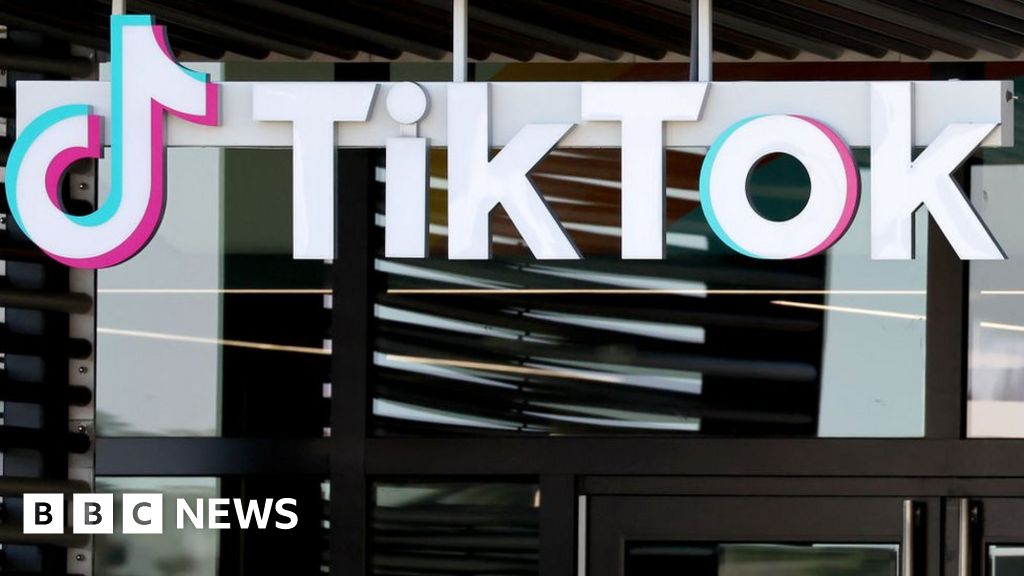China Hits Out At US Over TikTok Ban On Federal Devices

China has accused the US of overreacting after federal employees were ordered to remove the video app TikTok from government-issued phones.
On Monday, the White House gave government agencies 30 days to ensure that employees did not have the Chinese-owned app on federal devices.
The order follows similar moves by the EU and Canada in recent weeks.
A spokesperson for China's foreign ministry accused the US of abusing state power to suppress foreign firms.
"We firmly oppose those wrong actions," spokeswoman Mao Ning told reporters during a news briefing on Tuesday. "The US government should respect the principles of market economy and fair competition, stop suppressing the companies and provide an open, fair and non-discriminatory environment for foreign companies in the US."
"How unsure of itself can the world's top superpower like the US be to fear young people's favourite app like that?" she added.
Western officials have become increasingly concerned about the popular video sharing app - which is owned by Chinese firm ByteDance - in recent months.
However, Australia said it had not received any advice from its intelligence services recommending that it follow the examples of the US, the EU and Canada.
TikTok has faced allegations that it harvests users' data and hands it to the Chinese government, with some intelligence agencies worried that sensitive information could be exposed when the app is downloaded to government devices.
The company insists it operates no differently to other social media companies and says it would never comply with an order to transfer data.
On Monday, US Office of Management and Budget Director Shalanda Young told agencies they had to scrub the app from all state-issued phones to protect confidential data.
The agency said the guidance marked a "critical step forward in addressing the risks presented by the app to sensitive government data".
Some federal offices - including the White House and the Departments of Defence, Homeland Security and State - have already banned TikTok from their devices.
The US Federal Chief Information Security Officer Chris DeRusha said the move emphasised the Biden administration's "ongoing commitment to securing our digital infrastructure and protecting the American people's security and privacy".
Tuesday's announcement follows the passage of legislation by the US House of Representatives in December which banned the use of TikTok on state-issued phones and gave the White House 60 days to issue agency directives.
And congressional Republicans are expected to pass further legislation in the coming weeks which would give President Joe Biden the power to ban the app nationally.
"We hope that when it comes to addressing national security concerns about TikTok beyond government devices, Congress will explore solutions that won't have the effect of censoring the voices of millions of Americans," a TikTok spokesperson told the BBC.
Canada has also imposed a new ban on the app on government devices starting from Tuesday. The decision followed a review conducted by the country's chief information officer, who ruled the app presented "an unacceptable level of risk to privacy and security".
Prime Minister Justin Trudeau said there was enough concern about security around the app to require the change.
"This may the first step, this may be the only step we need to take," he said on Monday at a press conference near Toronto.
And the European Parliament also approved a ban on the app on staff phones, following the European Commission's move last week.
A TikTok spokesperson told the BBC that the bans had been adopted "without any deliberation" and amounted to "little more than political theatre".
From Chip War To Cloud War: The Next Frontier In Global Tech Competition
The global chip war, characterized by intense competition among nations and corporations for supremacy in semiconductor ... Read more
The High Stakes Of Tech Regulation: Security Risks And Market Dynamics
The influence of tech giants in the global economy continues to grow, raising crucial questions about how to balance sec... Read more
The Tyranny Of Instagram Interiors: Why It's Time To Break Free From Algorithm-Driven Aesthetics
Instagram has become a dominant force in shaping interior design trends, offering a seemingly endless stream of inspirat... Read more
The Data Crunch In AI: Strategies For Sustainability
Exploring solutions to the imminent exhaustion of internet data for AI training.As the artificial intelligence (AI) indu... Read more
Google Abandons Four-Year Effort To Remove Cookies From Chrome Browser
After four years of dedicated effort, Google has decided to abandon its plan to remove third-party cookies from its Chro... Read more
LinkedIn Embraces AI And Gamification To Drive User Engagement And Revenue
In an effort to tackle slowing revenue growth and enhance user engagement, LinkedIn is turning to artificial intelligenc... Read more

